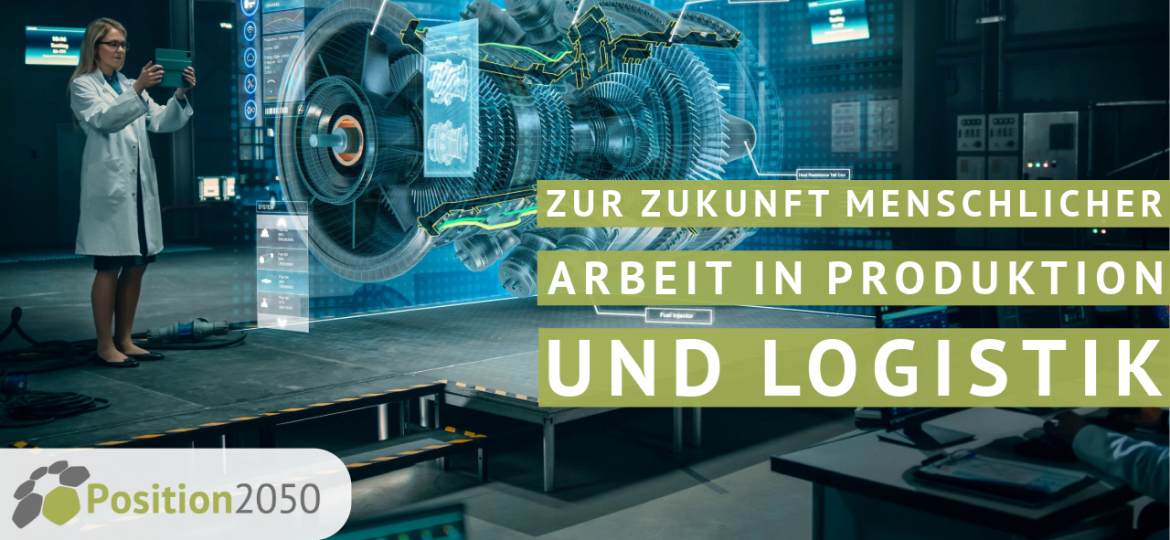Will humans still play a role at all in the industrial production processes of the future? Prof. Dr. Peter Kuhlang, CEO of MTM ASSOCIATION e. V., will address this question as part of #Position2050. The Lean Knowledge Base event on November 6 and 7, 2024, will focus on the most pressing issues of the future in the economic, political, social and environmental clusters. Read here how Peter Kuhlang positions himself on the future of human work.
Nothing is known for sure, but the many possible future scenarios have one thing in common: our world – and therefore our working world – will change profoundly in the coming decades! We can expect a strong increase in the global population, a decline in the population in Europe and a shortage of skilled workers. Ongoing urbanization will lead to an increased influx into cities, where more small production facilities will be established. This development goes hand in hand with the emergence of so-called smart cities, which function as technology centers. Due to increasingly unstable supply chains, the motto in production and logistics is “local instead of global”. Geopolitical competition for technologies and resources and concerns about machines replacing human labor are omnipresent.
In the logistics sector, autonomous transport vehicles, drones and AGV lockers are being used for parcel delivery. Business ecosystems are emerging to cope with the growing complexity. In production, the introduction of Industry 5.0 marks a new era. With technologies such as digitalization and artificial intelligence (AI), cyber-physical systems are being developed into cognitive systems and the Internet of Things (IoT) is being equipped with intelligent functions (IIoT). 6G networks guarantee unprecedented seamless connectivity and data speed.
THE VALUE CREATOR AT THE CENTER OF DIGITAL WORK PLANNING
This new era is (hopefully) characterized by a human-centric approach, resilience and sustainability in production. As the human digital twin, the value creator is at the center of digital work planning. Assistance systems such as AR and VR tools equipped with gesture and voice recognition support the so-called smart operators. Technologies such as exoskeletons, human simulation and motion capture as well as methods for efficient and ergonomic work design such as MTM help to overcome the challenges.
AI will be omnipresent in 2050 – part of our everyday lives and an integral part of industrial processes. We humans will have the role of checking the results of AI, verifying their plausibility and questioning them on a context- or domain-specific basis. It is therefore important to focus on what AI can already do today and how collaboration between humans and machines is likely to develop.
POSSIBLE APPLICATIONS OF KI IN THE DESIGN OF HUMAN WORK
The lecture on the #Position2050 provides an overview of relevant AI technologies and Industrial Data Science (IDS) as an interface between computer science, statistics and engineering. The aim is to convey an understanding of AI and to provide participants with ideas and inspiration for its use in production, logistics and industrial engineering based on specific use cases. The focus is on the requirements and possible applications of AI in the design of human work.
SYSTEMATIC PLANNING REMAINS THE KEY TO EXCELLENT PRODUCTIVITY IN 2050
The premise: Systematic planning, design and improvement of work systems and methods will continue to be the key to excellent productivity and humane working conditions in industrial processes in 2050. Time has been a central control variable here since the beginning of the industrial age – and it will remain so. In the future, industrial engineers will no longer be occupied with recording and managing time and ergonomics data, but with evaluating alternative solutions. With AI, digital technologies and the integrated time standard MTM, work planning is easier and faster. This brings the intelligent and creative design of work to the fore – a good outlook for 2050!
More infos and tickets for the #Position2050 on https://leanbase.de/position2050
Systematic planning, design and improvement of work systems and methods will continue to be the key to excellent productivity and humane working conditions in 2050.

